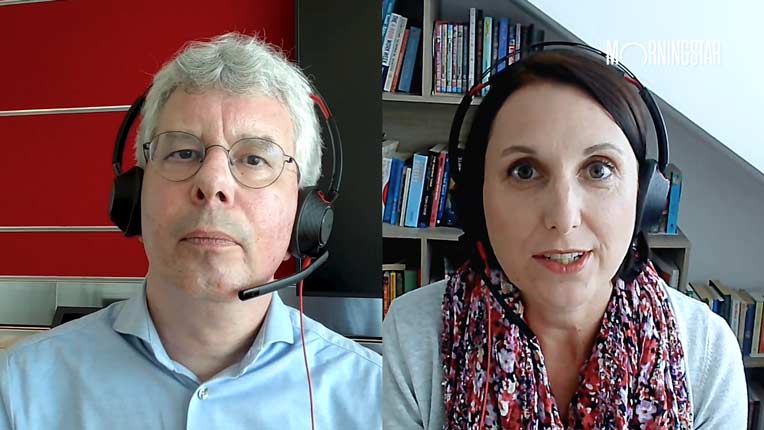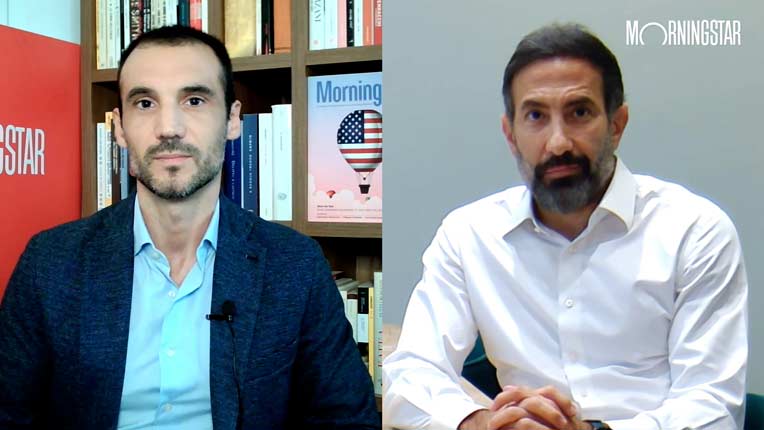Holly Black: Welcome to Morningstar. I'm Holly Black. With me is Gordon Fraser from the BlackRock Emerging Markets Fund. Hello.
Gordon Fraser: Hi Holly, nice to be with you.
Black: So, Gordon, I think emerging markets often get overlooked by investors, particularly in this sort of growthy, tech focused environment, but what do you think are some of the most exciting reasons to invest in this area?
Fraser: So I think the one thing emerging markets gives you more so than really any other equity asset class, is just variety. You've got 25 countries in the index, you've got 4,000 stocks that are liquid enough to invest in. And the best thing is they all move around a lot. So the job of an active manager would be kind of boring, if the stocks never moved and emerging markets, you get a lot of dispersion. And you've got those 25 countries to play with. So it gives a huge amount of variety, huge amount of opportunity for adding value. Of course, it can go the other way, as well. But that's the exciting thing about emerging markets,
Black: So you said they move around a lot. So what are some of the most compelling opportunities at the moment that you're finding.
Fraser: So I was thinking kind of step back and looking at the bigger picture about markets over the next year. I think, actually, if we go back a year ago, and think about how we felt last August, or last September, we were looking forward to a recovery from COVID. We had huge monetary policy support behind markets. And I think now as we sit just about entering Q4, in 2021, some of those tailwinds are going away. So I think the general environment for markets looking forward is probably more challenging than it was this time last year. In particular, I think there's a lot of risk around margins for companies. So one thing we're looking at a lot in our process is trying to identify companies where there isn't margin risk, and where potentially is margin upside. There's a lot of companies that had a lot of benefits from COVID beyond the obvious winners, companies have benefited from lower travel expense, maybe lower employee attrition. And that can be a risk as economies normalise. So we're really focusing trying to avoid those losers. Focus on the winners at a company standpoint.
Black: So I think a lot of people associate emerging markets with exports and commodities in particular, do you think that's still true today? Or do you find other industries are just as interesting?
Fraser: Yes, I think that's really kind of the emerging markets 1.0 which was just all about kind of emerging markets, converging with developed markets, copying what's happening in DM, maybe providing some of the commodities for developed market consumption. But I think things have changed in EM. emerging markets are leaders in many areas, you've seen emerging market consumers adopt technology more quickly, than in developed markets in many areas. In some of the more high-tech industries as well, whether it's renewables, or electric vehicles really EM dominant in that manufacturing space. So that kind of preconception of EM is kind of subordinate to DM, I think is out of date, and then actually presents an opportunity for foreign investors.
Black: But we know with these regions, there are economic and political and currency risks. Are there any particular areas of caution for you at the moment?
Fraser: So we have a macro process that allocates capital between emerging markets where we try to identify the cycles. Now, there's 25 countries in the index, they don't all have the same cycle. So there's always areas where we think they're in a more, late cycle environment there is more risk to the currencies. And there are some countries like that. And then there's some countries we think, are in a more early cycle environment and there's upside from recovery. So really, when we're thinking about macro in emerging markets, we're looking to invest in the countries that haven't taken on a lot of debt during COVID that will be able to enjoy economic recovery. The countries with flexible economies and flexible labour forces that can adapt and have a strong recovery. That's what we're really trying to focus our capital and take it away from the countries where we see more structural issues or we see more kind of cyclical challenges as well.
Black: Gordon, fantastic. Thank you so much for your time. For Morningstar I'm Holly Black.





















